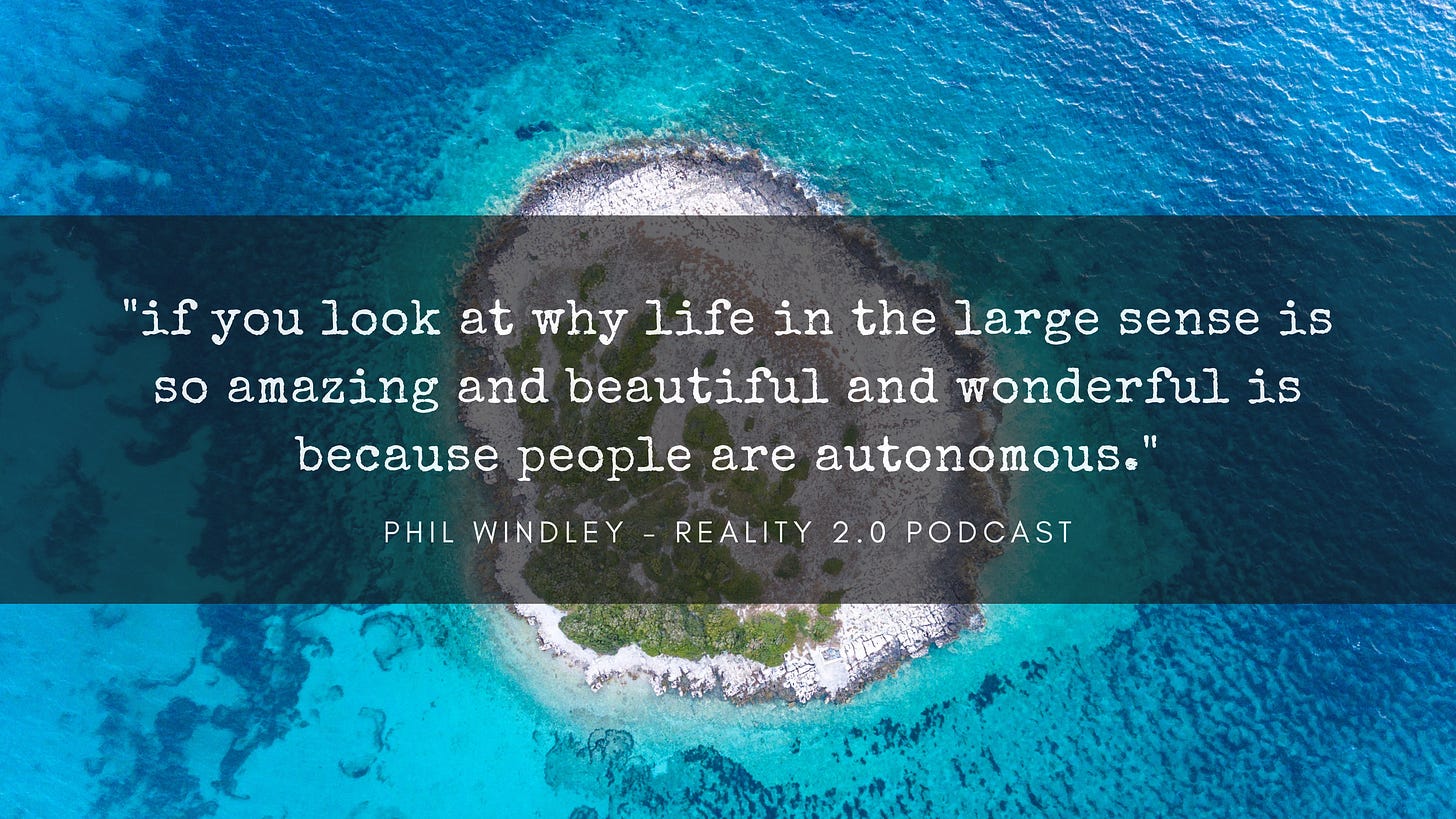To get this weekly dose of Reality delivered by email, sign up on our Substack page.
A Quick Plug
Episode 89: Digital Identity
Katherine Druckman and Doc Searls talk to Phil Windley about digital identity, picos, oauth, and big tech ecosystems.
Please remember to subscribe via the podcast player of your choice.
We need self-sovereign identity. We need to be in charge of the way we identify ourselves in the digital and physical worlds. Today, however, there is a significant delta between the way most of us currently identify ourselves online, and the way many would consider ideal.
The concept of logging in for everything has not always been the norm online. In the early days, the web was less dependent on the practice, and much more sovereign in the sense that people tended to mind their own individual islands, using independent blogs or websites rather than the current way of sharing information via social media or other large platforms like Medium or Substack, but the early web was largely made up of more technical users, so one wonders if we could go back or how we might evolve. How will we identify ourselves in the metaverse?
In The End of Logins and Passwords, Just for Starters, Doc wrote:
There is no end to the number and ways SSI can grow outside of the old administrative identity box. Take, for example, what the tech educator Phil Windley calls the self-sovereign internet of things. Here your things are truly yours and under your control. They don’t even need to be smart. For example, you can slap a QR code on your dumb gizmo, scan it into a cloud of its own (called a “pico,” for “persistent compute object”), and you can have a relationship with the maker or seller of that gizmo through that pico. When picos become common, they will give you one way to deal with many different companies, and save those companies the trouble of maintaining their own proprietary systems for limiting customer involvement (including useful forms of customer input).
For more on identity, see Doc’s archive, or the Internet Identity Workshop.
We dove into these ideas in Episode 89, and we’d love to know your thoughts.
You can always reach us in a comment, on any of our social outlets, or via our contact form.
Site/Blog/Newsletter | Facebook | Twitter | YouTube | Mastodon
This Week’s Reading List
7 Laws of Identity – Kim Cameron's Identity Weblog — Here's the most beautiful take yet on the Seven Laws of Identity – put together by Karon and Katrika, who even saw how the Laws connect with the Perception of Ailatan. In the past people have asked why I didn't do a Laws of Identity poster – this must be it. Click to view full size.
Rainbows End - Wikipedia — Rainbows End is a 2006 science fiction novel by Vernor Vinge. It was awarded the 2007 Hugo Award for Best Novel.[1] The book is set in San Diego, California, in 2025, in a variation of the fictional world Vinge explored in his 2002 Hugo-winning novella "Fast Times at Fairmont High" and 2004's "Synthetic Serendipity". Vinge has tentative plans for a sequel,[2] picking up some of the loose threads left at the end of the novel. The many technological advances depicted in the novel suggest that the world is undergoing ever-increasing change, following the technological singularity, a recurring subject in Vinge's fiction and nonfiction writing.
Ten Reasons to Use Picos for Your Next Decentralized Programming Project — Picos are a programming model for building decentralized applications that provide significant benefits in the form of abstractions that reduce programmer effort. Here are ten eleven reasons you should use picos for your next decentralized application.
Moore's law - Wikipedia — Moore's law is the observation that the number of transistors in a dense integrated circuit (IC) doubles about every two years. Moore's law is an observation and projection of a historical trend. Rather than a law of physics, it is an empirical relationship linked to gains from experience in production.
Doc Searls Weblog · Car design trends — On Quora, here’s my answer to What are the worst design trends in modern cars?—updated by our family’s experience with a new Toyota that features even more indicators than the bunch above.
The Reality 2.0 Podcast explores how tech, privacy, and security impact reality in a post-COVID world. Subscribe now and don't miss a thing! We welcome your feedback at our contact page.

